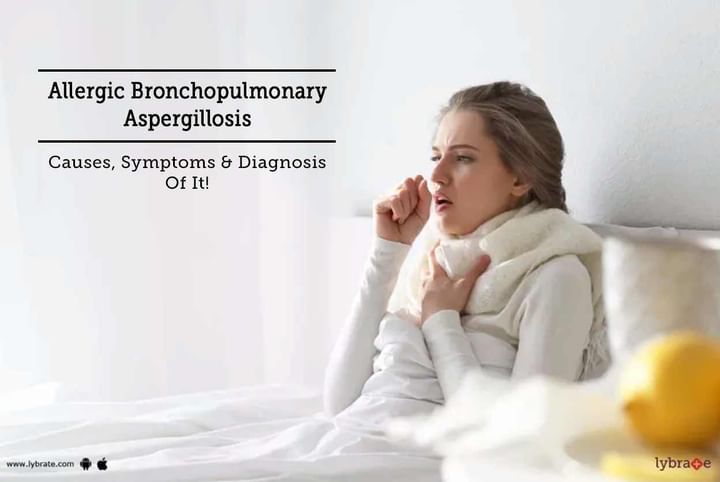Allergic Bronchopulmonary Aspergillosis - Causes, Symptoms & Diagnosis Of It!
Allergic bronchopulmonary aspergillosis (ABPA) is a allergic manifestation to the fungus Aspergillus sp. Patient with underlying Bronchial Asthma or Cystic Fibrosis are more susceptible to this. The patient may be having severe symptoms of asthma which respond poorly to inhaled medications.
This fungus is very commonly found in the surroundings and is referred to as mold. It is found at various places like soil, water, air and even on decaying matter. This fungus has the characteristic feature of spore formation and these spores are inhaled commonly from the air, without causing any disease or discomfort.
The fungus enters the body and produces colonies by inhabiting the airways. But the presence of Aspergillosis in the lungs does not always indicate an infection. In people with weakened immunity, this fungus enters the lungs and produces an acute infection that spreads along the respiratory tract. An allergic response given by the immune system to the Aspergillus fungi causes the allergic bronchopulmonary aspergillosis.
In this condition, there is a tightening of the muscles of the airway. There is a build of mucus which causes frequent coughing, obstruction of the airway and difficulty in breathing.
Symptoms of this disease are as follows:
1. Frequent cough
2. Brown colored mucus while coughing
3. Hemoptysis (blood in cough)
4. Difficulty in breathing
5. Wheezing sounds from the chest
6. Lethargy and weakness
7. Tightness of the chest In case of an asthmatic patient, if asthma is in a poorly controlled state, this condition is most likely to develop.
Causes:
People suffering from asthma can contract ABPA when the medications are unable to control asthma. ABPA can also occur with cystic fibrosis which is a condition that has a genetic basis.
Diagnosis
Diagnosis of this condition is difficult. It is usually diagnosed on the basis of the symptoms experienced by the patient. Certain specific tests like lung function tests (spirometry) can be carried out to evaluate the breathing capacity of the lungs.
An evaluation of the levels of the immunoglobulin IgE is also required. In conditions that are related to allergic responses from the immune system, it is observed that the levels of IgE are raised than above normal.
However, in ABPA the levels of the immunoglobulin IgE rise to a very high count. Monitoring of the IgE levels is done regularly during the management of ABPA. Chest x- rays do not help in the diagnosis of this disease. While treating ABPA, the evaluation of the immunoglobulin levels is done regularly. To relieve inflammation corticosteroids can be given.
Treatment of ABPA is Oral corticosteroids and in case of steroid dependence or persistent symptoms consider adding antifungal. Also, to treat the fungal infection, anti-fungal medications are prescribed. Repeated episodes of ABPA require more targeted treatment. Itraconazole is the anti-fungal drug which is effective in treating the fungal infection.



+1.svg)
